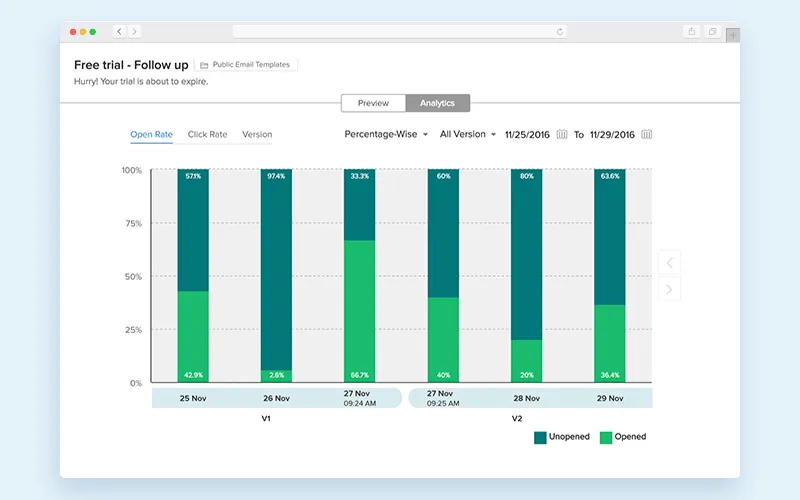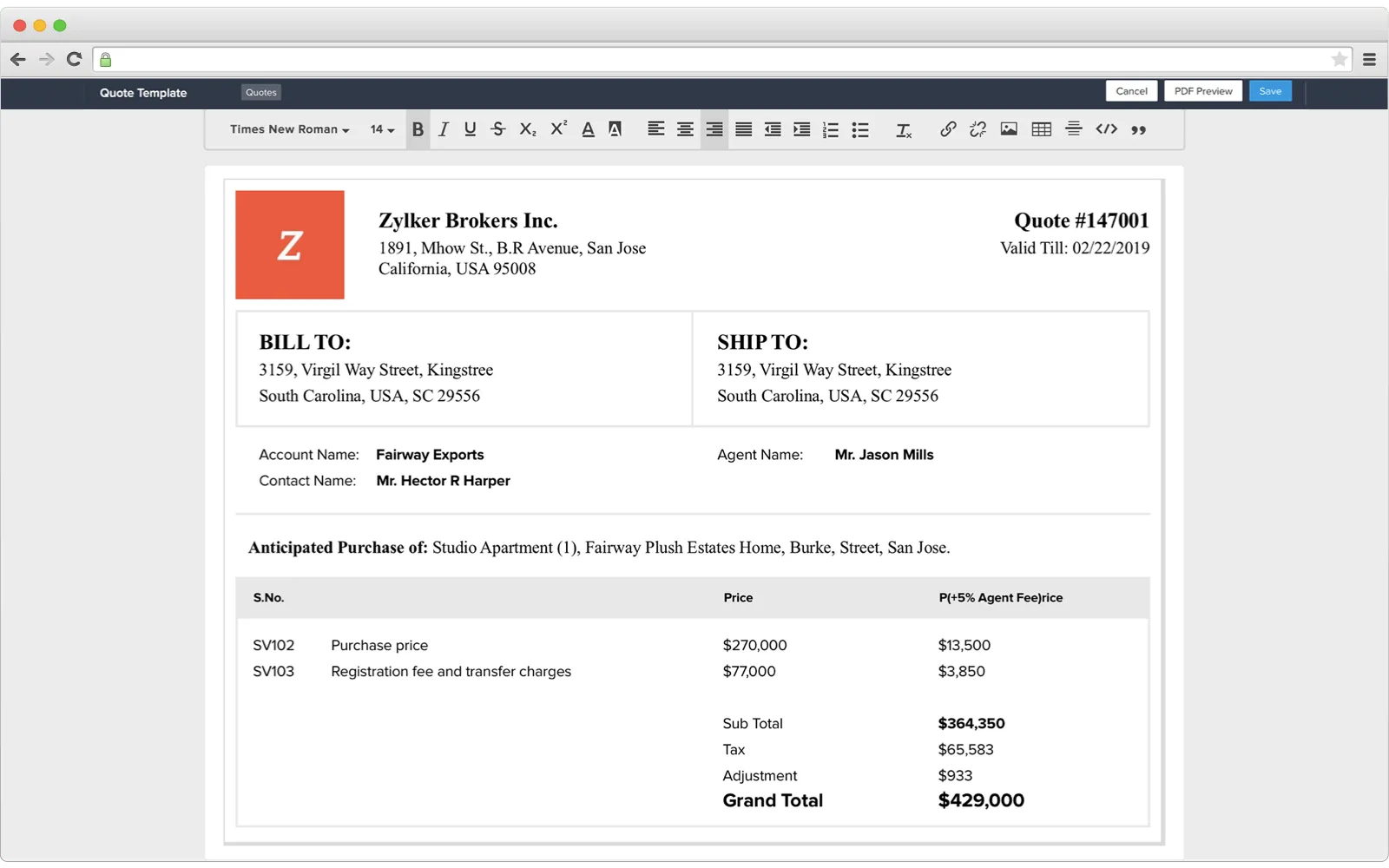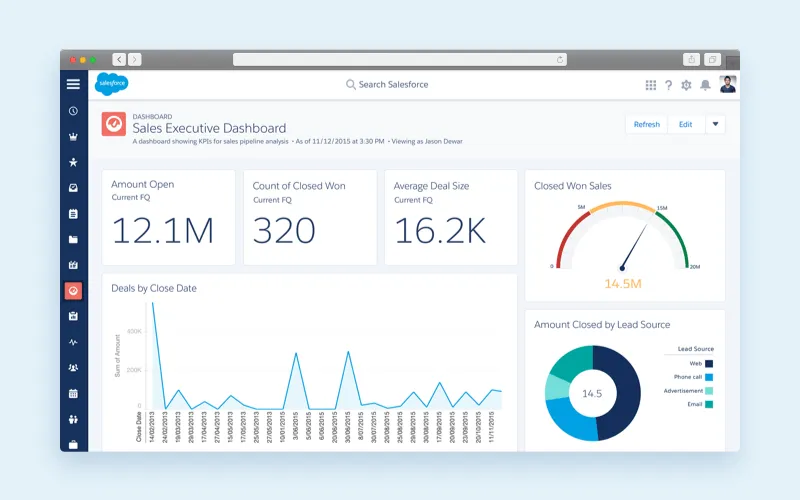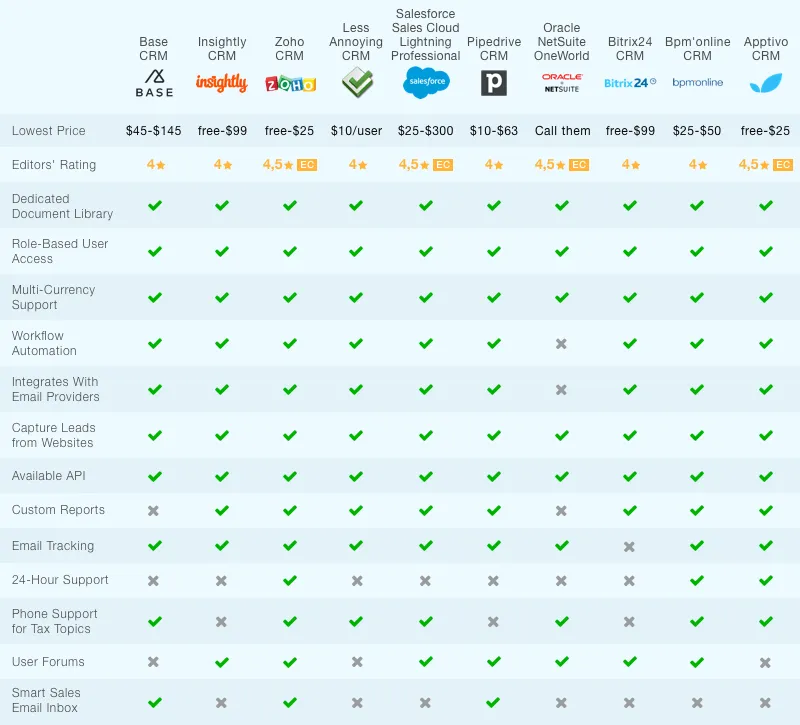5 Vital Hints for Picking the Real Estate CRM Tailored for Your Business
Updated 10 Aug 2023
10 Min
5058 Views
Aside from all the affairs of great importance, businesses around the globe should be totally obsessed with their customers. I mean, those people literally keep your company afloat - you cannot neglect them. Thanks to IT, there is a bunch of solutions like real estate CRM software allowing businesses to building and maintaining customer relationships effectively wherever they are.
Let’s face it: real estate business is in dire need of Customer Relationship Management software. Fields like this imply long-term relations with customers (especially in case of renting) and need the records to be maintained accurately and efficiently.
That’s why we’ve decided to tell you about software that will cover the needs of your business related to real estate. But first, we will talk about the criteria of their selection (if you came here to see a real estate CRM comparison - scroll down to the end of the article page).
CRM software for real estate and it's main goals
Before choosing the most fitting real estate CRM system, you should find out what features you actually expect it to perform.
Therefore, consider the operations you are faced with in your professional activity regularly or most frequently. Are you working with sales or rental? Are the apartments you manage low-income or maybe luxury? These points influence a lot on how the company is going to interact with the customers.
First and foremost, your CRM must be capable of managing sales effectively. Respectively, it should be good at managing leads since that’s where the purchase begins. Regardless of the sources where your leads come from, be it email marketing or online advertising, the platform you choose should be able to ingest the data about them, and automatically spread it among your personnel and let them filter it.
Generally, CRM real estate software of your choice should contain the following:
- Preferably an automated import of data leads regardless of the source it was taken from
- The opportunity for managers to track salespersons with the most number of leads, as well as the number of closing deals
- The chance to customize workflows since the system should be capable of correctly routing the information given from several executives
- The hierarchy of access depending on the roles in a team
Till the platform you have chosen satisfies these general facilities and your web developers are able to customize them - this piece of software will be well-adapted for the sales scheme you already follow.

Email analytics in Zoho CRM (Source: Zoho)
Let's consider several tips on how to choose CRM platform for real estate.
1. Don't let CRM services trick you
Surely, there are lots of CRM systems that are tailored to real estate activities. However, largely, they are not likely to meet some specific scenarios existing within your business. That's because developers simply cannot predict all of them, as well as how a separate real estate firm will operate.
So, it makes sense to use the general-purpose CRMs having the same capabilities aboard, plus features of customization and integration that often overpass the ones proposed in dedicated solutions. This way, you can extend the capabilities of your CRM by using a proven platform instead of tailoring your business for a specialized one.
Want to make real estate app for your business? Read our article to explore app ideas and features
The thing is that any procedure connected with real estate is influenced by lots of legal and administrative obligations. The level of these operations can vary from federal to state or municipal levels. In the meantime, the regulations are pretty different depending on the locales of where the separate business is involved in.
Actually, the list of demands for each operation is pretty long and includes housing laws, lease languages, and so on. All of them can generally affect how the company does it's business.
The factors mentioned above, call into question the possibility to create a dedicated full-scale real estate solution that’s able to cover all the aspects of doing business in this sphere.
2. Select a data-driven path
Another point to consider when choosing is how advanced real estate CRM is when it comes to storing and data processing. Depending on the kind of operation, you will be faced with the necessity to attach information about customers.
For smaller operations, several fields that will form the database in your solution will be enough. And for bigger ones, you will probably have to deal with third-party services or sources to get your records or documents.
Learn more about our expertise in real estate. Read our case study about how we developed a real estate database application
For instance, renters of luxury apartments sometimes require tax forms, documents that verify income and so on. Talking about a home selling operation, you might need mortgage records, previous rental data, and even checks for criminal background. Not to mention commercial operations that might contain lists of employees, information about taxes and developers requiring localized documents.
However, just attaching these documents to your database is not enough. CRM systems for real estate should also be able to:
- Support various file formats
- Import documents automatically into the system
- Have reliable security so you could store the personal data of your customers without any threats to it
- Edit records that are stored in there, like lease documents that are being filled throughout the deal

Event-based triggers in Apptivo CRM (Source: Apptivo)
3. Access your CRM across multiple platforms
Whatever real estate operations that you lean forward, be it renting or selling, you should not underestimate the convenience of mobile devices. If you own a company, most of your employees are probably working on the go. There is no need to look far - the sales staff is a great example. These guys may need to use their smartphones for updating some records in the CRM.
The solution you choose should correspond to the following criteria:
Desktops and mobility
Your CRM should support desktop operating systems, as well as the mobile ones preferred by your employees. Besides, they have to be equally supported. I mean, their interface along with functionality should be the same over desktop platforms, be it macOS or Windows. Certainly, mobile versions will differ from desktop ones but, nevertheless, they should feel and look the same when running on iOS and Android. In another case, your employees might need re-training. Besides, such a requirement can help you to distinguish a good quality CRM service from a poor one.
Cross-platform development unity
Let’s start from the point that your team of developers should be capable of managing software equally (if it is necessary) regardless of the platform that it is working on. That way, if you require adjusting the software for specific needs, the customized changes should function on mobile platforms as well. Commonly, these changes imply adding some additional fields and automated workflow to your CRM. However, you may go much further in customization if you want and the flexibility of your CRM is capable of that. For this purpose, the code has to be responsive so that it could fit all the devices be it a smartphone or a laptop.
So, bear these two easy points in mind while choosing the real estate CRM solution for your business. Test it on all the devices it is going to be used on and involve your IT specialists in order to poke around everything connected with the customization capabilities.

Salesforce CRM interface (Source: Salesforce)
4. Choose secure solutions only
A large number of real estate CRM solutions are cloud-based. That’s cost-effective due to the pricing model based on subscriptions, as well as convenient since you and your personnel can access the data from any device that has an Internet connection. However, that also means all your sensitive data isn’t stored in a locked safe behind the picture in your office, but somewhere on a cloud.
Are you about to open your real estate database website? Discover our research related to the most popular real estate websites in the world
Looking back at data that is usually collected from luxury renters or buyers before giving them the approval, it becomes understood why security is a really important thing. Tax returns, payment records, references - the list is long. I suppose it is pretty obvious that if this information leaks to the internet - a subpoena is guaranteed.
In order to avoid similar situations, do not ignore security issues in your real estate CRM software. All the content you see on the service’s website or receive from a vendor directly are marketing-powered. They will claim that their service is as secure as actually possible. As a result, many customers take their word for it and continue considering other features just skipping the security one. Wrong! Take your time and discuss this with your IT personnel. That will provide you with a professional conclusion concerning one’s service, Internet security.
Find out whether your CRM vendor gives you an opportunity for choosing the place for storing. If so, it opens up good opportunities for data protection for your developers (encryption, data storage in multiple locations). However, in this case, be ready to discuss the changes with your CRM vendor since it may affect the pricing.
5. Keep in touch with customers
If the sale deal is closed that doesn't mean that your interaction with this customer is over. Yes, after a renter has signed the lease a certain part of the relationship is over, but the next part including operations related to property management is only about to begin. Moreover, it will stop only when the lease finishes.
Whatever software solution your company is using to satisfy the maintenance requests of renters, it should have an opportunity for being integrated with the real estate CRM system you’re using. This way, your staff always knows what they are dealing with if it’s time to renew a lease or a client decided to move into another property managed by your company.
Do not forget about your system of accounting that should be pretty good at data processing. That will be helpful in case of delayed rent payments, as well as damages to property. Probably, you will even require that your CRM could import and synchronize that data with the record made there. That fact may facilitate further cooperation with a customer.
So, consider real estate CRM systems from different angles. Make sure it is flexible and allows you to edit the data stored there, as well as allows third-party services to access it.
Check out the comparison of CRM software appropriate for real estate underneath.

Real estate CRM software comparison
Wrapping up
In case you find the functionality of a chosen CRM insufficient and want to modify it or build a custom real estate CRM from scratch — contact our managers. We’ve been working in the real estate industry for years now and have delivered a variety of different tech solutions for our clients.
By contacting our managers, you’ll get a FREE consultation regarding your project as well as it's estimation.
Oh, wait. Do not forget to subscribe in order not to miss our weekly email with exclusive articles and videos from our team.
Talking about videos, here is the one that will help you to choose the name for your real estate business, enjoy!
CRM is a Customer Relationship Management system that helps estate agents manage new clients, close deals and automate real estate operations.
Follow these tips to choose a suitable CRM for your business:
- Select a data-driven path
- Your CRM should be availabe across multiple platforms
- Choose secure solutions only
- Pay attention to reviews
Generally, CRM real estate software of your choice should contain the following:
- Preferably an automated import of data leads regardless of the source it was taken from
- The opportunity for managers to track salespersons with the most number of leads, as well as the number of closing deals
- The chance to customize workflows since the system should be capable of correctly routing the information given from several executives
- The hierarchy of access depending on the roles in a team
There are several major benefits of adopting CRM in real estate companies.
- No lead leakage
- Fast respond time to customer inquiries
- Increased efficiency
- Better customer retention

Evgeniy Altynpara is a CTO and member of the Forbes Councils’ community of tech professionals. He is an expert in software development and technological entrepreneurship and has 10+years of experience in digital transformation consulting in Healthcare, FinTech, Supply Chain and Logistics
Give us your impressions about this article
Give us your impressions about this article